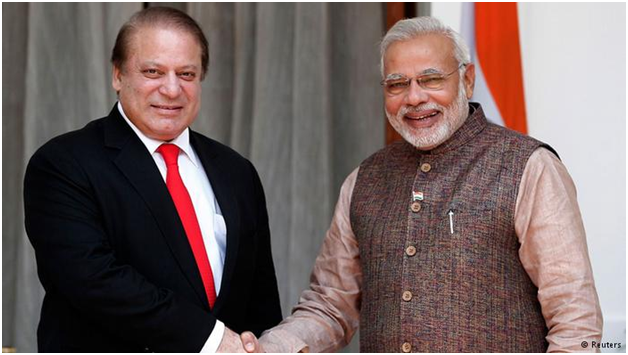Obama Likely to Press for India Pakistan Dialogue
US President Barack Obama to urge resumption of India Pakistan talks

NEW DELHI: US President Barack Obama is expected to urge Prime Minister Narendra Modi to resume the dialogue with Pakistan without delay. The message will be communicated gently during the Presidents visit to India but sources expect this to be reinforced by the US State Department and possibly the White House after the visit in no uncertain terms.
Pakistan, in response to US efforts, has taken a major step in outlawing the lethal Haqqani network as well as the Jamaat-ud-Dawa and its chief Hafiz Sayeed. The JuD is seen as the mentor and patron of the militant terror organisation the Lashkar e Tayaba. India had for long been demanding the arrest of Sayeed as the ‘mastermind’ behind the terror attacks here.
The US after a while has expressed concern about the continuing stand off between New Delhi and Islamabad. Relations between Washington and Islamabad have improved considerably with the Pakistan military’s offensive against militant organisations in Waziristan and the borders with Afghanistan. The visits by Pakistan army chief General Raheel Sharif have also done a great deal to still suspicions and build a relationship with more trust and cooperation.
The recurrent theme of the Pakistan military and government interactions with the US has been India’s hostile attitude since the Modi government came to power. Islamabad has sought to impress upon the US that its offensive against the extremist organisations was suffering because of the deteriorating relations with India that compelled Pakistan to retain a sizeable military presence on its eastern borders as well.
The dastardly terror attack on schoolchildren in Peshawar was a major turning point for the Pakistan military that turned on a full no holds barred offensive against the terror groups. Pakistan revived its death penalty and has executed several leaders. The Indian demand to take action against the groups operating in India, with Hafiz Sayeed a major thorn in bilateral relations, has been finally dealt with by Pakistan that has now clearly decided not to differentiate between ‘terror’ and ‘terror’.
Interestingly the shift also coincides with the decision to stop differentiating between the good and bad Taliban as policy. The move against Sayeed is being perceived as a major step within Pakistan, as he had become a veritable ‘institution’ in Lahore. And had only recently held a huge rally.
New Delhi’s response to US pressure on resuming the dialogue has still to be determined. The Modi government, given its hard line support base in the form of anti-peace affiliates like the Vishwa Hindu Parishad, has closed all lines of communication. National Security Advisor Ajit Doval who has been determining relations with Pakistan is a hawk and in a speech just before the new government came to power described it as the ‘enemy’ that needed to be dealt with accordingly. He spoke of covert operations against Pakistan whereby it became costly for it to perpetrate a terror attack wherein “for a Mumbai they lose Balochistan.” He had emphasised the need to move from what he described as India’s ‘defensive’ mode to ‘offensive defence.”
The stand off is turning the clock back to again an almost irreversible position in India Pakistan relations. Cross border tensions have escalated as has the rhetoric. Although PM Modi himself has not indulged in criticism against Pakistan, the offshoots have been fairly unguarded in their speech. Pakistan too has stepped up its offensive on Kashmir, maintaining that there can be no talks without a resolution of this issue. The US is committed to de-escalation with Obama expected to articulate this during his meetings with the Prime Minister and other leaders in New Delhi.



